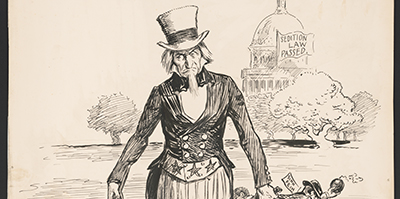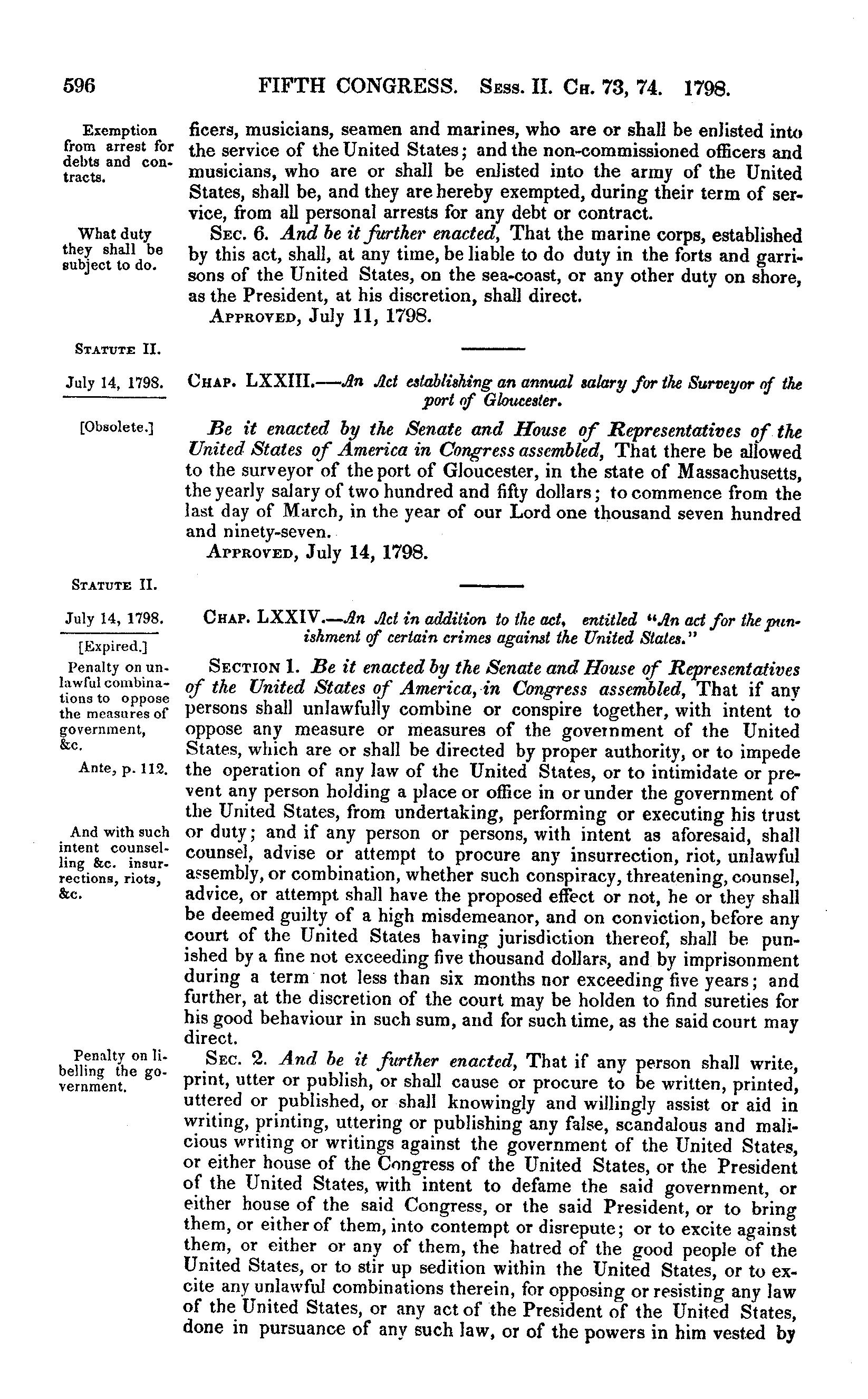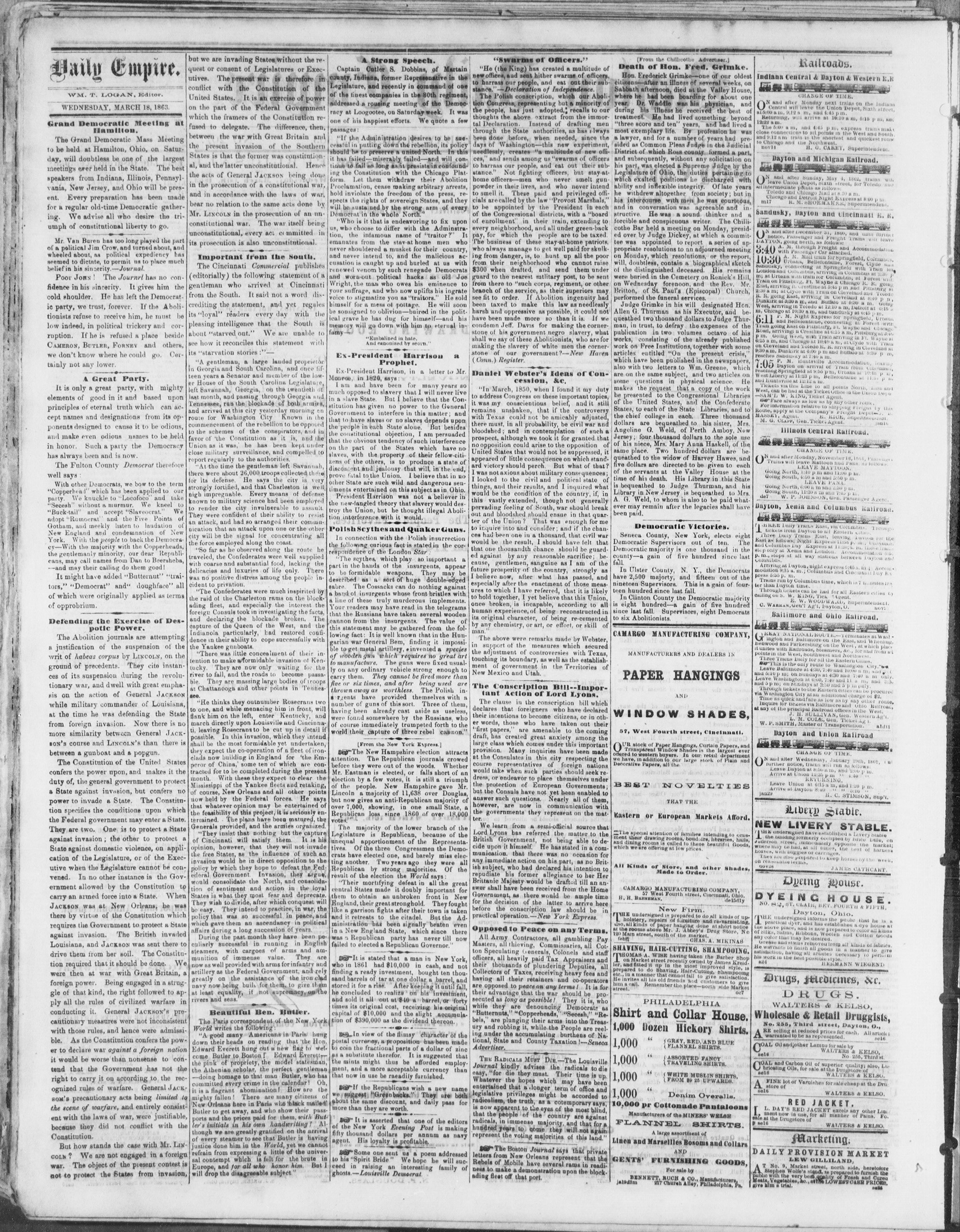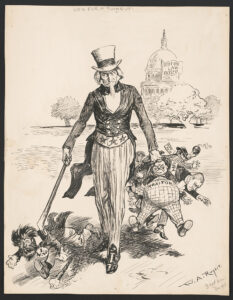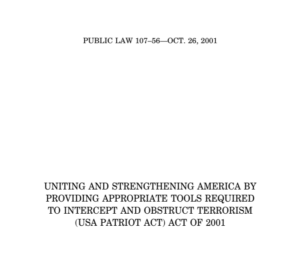How has the United States Government limited civil liberties during war time?
Subject(s): Civics & Government, US History, and Arkansas History
Time Period(s): (1754-1820s) Revolution and the New Nation, (1850-1877) Civil War and Reconstruction, (1890-1930) Emergence of Modern America, (1929-1945) Great Depression and World War II, and (1968 to the Present) Contemporary United States
Grade level(s): 6-8 and 9-12
Supporting question(s):
What civil liberties are guaranteed to Americans?
Why might leaders want to restrict civil liberties during war time?
Source Set
- Alien and Sedition Acts of 1798
- Dayton Daily Empire, March 18, 1863
- Now For a Round Up
- Communiqué October 23. 1942
- The USA PATRIOT Act of 2001
Description
The Alien and Sedition Acts of 1798 were four laws passed by Congress under the administration of President John Adams. These laws were passed in anticipation of a potential war against France at the end of the French Revolution.
Description
The Dayton Daily Empire was founded circa 1844 and also was issued as the Evening Empire, the Weekly Empire, and the Tri-Weekly Empire. In 1860, ownership of the newspaper was passed to the I. R. Kelly & Company and John Frederick Bollmeyer. Following the murder of Bollmeyer in 1862, his assistant William T. Logan took over the newspaper.
Description
This political cartoon was drawn in response to the passing of the Sedition Act of 1918. This image was published in the New York Herald on May 9,1918.
Description
The Communiqué newspaper (also known as Denson jiho) was a semi-weekly newspaper that ran from Oct. 1942 to Feb 1943 inside the Jerome Relocation Center. The newspaper was published in both English and Japanese and was supported by the War Relocation Authority. After Feb. 1943, the newspaper was rebranded as the Denson Tribune.
Description
The Patriot Act of 2001 was passed following the September 11th attacks on the World Trade Center.
Additional resource(s):
William Rehnquist, All the Laws But One: Civil Liberties in Wartime (2000)
Arkansas Frameworks(s):
7th grade
- H.3.7.13- Evaluate how early Presidents and historical events influenced the development of the new nation
8th grade
- H.4.8.7-Analyze political, social, and economic effects of the Civil War on America including destruction of property and infrastructure, a weakened economy, a stronger federal government, and loss of life and livelihoods
- H.5.8.3-Investigate political, social, and technological outcomes of World War I on American society
High School U.S. History
- H.5.USH.8-Analyze the social, economic, and political effects of World War II on the American people
- H.5.USH.26-Construct explanations of change and continuity in foreign policy since 2001 after the September 11th, terrorist attacks in New York City and Washington, D.C
Arkansas History
- H.1.ARH.11-Investigate social, economic, and political effects of World War II on various segments of the population in Arkansas, including soldiers off to war, war casualties, women at work, Japanese-American internment camps, victory, and war production plants.
- H.5.ARH.7-Analyze social, economic, and political effects of World War II on various segments of the population in Arkansas, including soldiers off to war, war casualties, rationing, homefront (including women at work, war bonds, war production plants, victory gardens), prisoner of war camps (i.e., Camp Robinson, Fort Chaffee, Camp Dermott), and Japanese-American internment camps (i.e., Jerome and Rohwer).
US Government
- C.4.USG.2 – Explain ways the U.S. Constitution and U.S. Supreme Court decisions have defined, recognized, and protected or not protected civil liberties, due process, and equal protection from governmental intrusion over time.
